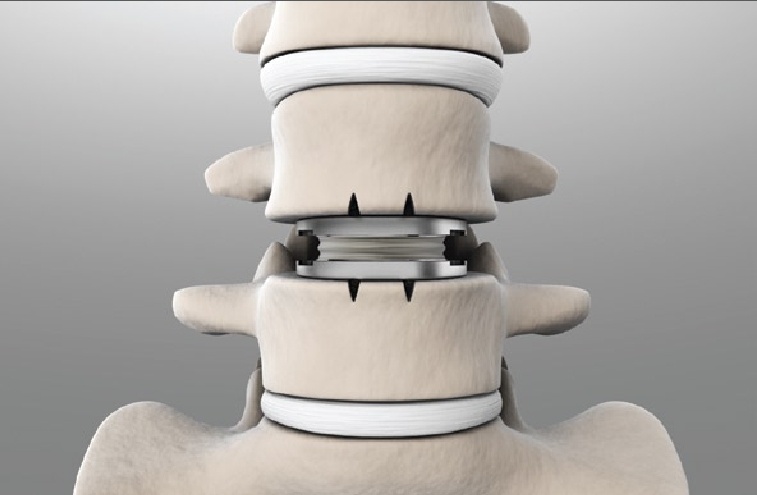If you are one of the many Americans who suffer from persistent back pain caused by degenerative disc disease or a herniated disc, you may be considering surgery. When conservative or minimally invasive treatment approaches such as steroid injections or physical therapy fail to provide pain relief, surgery is frequently the next step. Artificial disc replacement is one of these operations, which is often advised for patients with degenerative disc disease or a herniated disc.
An artificial disc replacement is a surgery that uses an anterior approach to replace a damaged disc that is causing back discomfort with a new artificial disc. An artificial disc replacement, like any other surgical procedure, is a major decision. Here, we will go over the indicators that may signal the necessity for artificial disc replacement surgery, as well as the alternatives to it and what you should know before undergoing this treatment.
Signs That You May Need a Disc Replacement
If you can identify with any of the symptoms listed below, artificial disc replacement may be the best option to help you achieve back pain relief. Consult a back pain specialist if you are suffering any of these symptoms to determine the best course of action for you.
You Have Radiating Pain That Travels Through Your Limbs
If you're having discomfort in your arms or legs, you may have a pinched nerve. Pinched nerves might result from a herniated or compressed cervical disc. If you are suffering from this type of pain and have not yet been diagnosed by a doctor, seek medical attention from a back pain specialist to determine the underlying source of your discomfort.
Depending on your diagnosis, your doctor may suggest trying a series of conservative treatment methods to determine whether your pain can be managed without the major decision of surgery. However, if the discs are badly compromised, conservative techniques may not be effective.
Conservative Pain Treatments Aren’t Helping
If you've tried conservative pain treatment methods such as epidural steroid injections, back braces, medications, or physical therapy and are still experiencing back pain, surgery may be the next step. Visit your back pain specialist and have an open discussion regarding the level of pain you were experiencing before attempting a conservative treatment, as well as what the level of discomfort was like during treatment. Before you consider surgery, alternative non-invasive or minimally invasive treatment may be available. However, after you've tried several types of conservative therapy, your back pain doctor may prescribe a procedure such as artificial disc replacement.
You Have Degenerative Disc Disease
If you have already been diagnosed with degenerative disc disease and the pain associated with it has worsened or is no longer controlled by your previously prescribed treatment, you should consider artificial disc replacement. Degenerative disc disease is a common reason why people require artificial disc replacements. Discs can get so weakened that it is best to entirely replace them.
You’ve Been Diagnosed With a Herniated Disc
Not all herniated disc cases are the same. While some herniated discs can be treated with rest, anti-inflammatories, and physical therapy, others require more extensive care. In some cases, artificial disc replacement may be recommended.
Artificial Disc Replacement Versus Spinal Fusion
If a patient requires an artificial disc replacement, a spinal fusion treatment should also be considered. A spinal fusion is a surgical technique in which an orthopedic surgeon removes a damaged or weakened disc and replaces it with a spacer containing a bone transplant to fuse disc spines. One disadvantage of this technique is that two vertebrae may fuse, resulting in a loss of mobility.
As a result, many younger or more active patients choose artificial disc replacement versus spinal fusion since it allows them to maintain more mobility. Healing time is also less complicated because there is no waiting period for bones to fully fuse and heal. In comparison, artificial disc replacements normally heal within six to eight weeks of surgery, whereas spinal fusions might take up to three months.


No comments yet